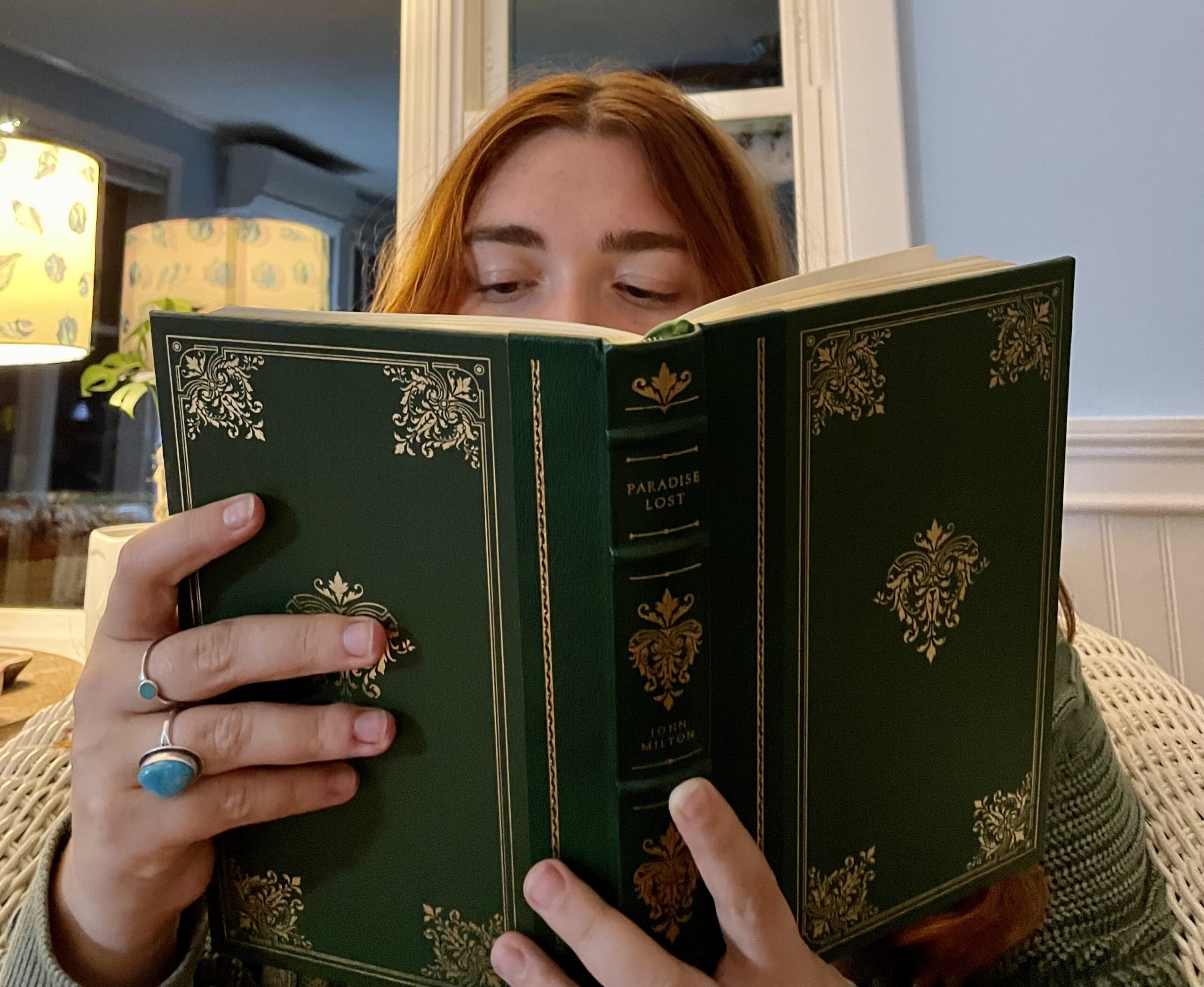Feinstein, Kingston campus holds multiple events
Pictured: ‘Paradise Lost’ by John Milton, a banned book because of its events being “too romantic.” PHOTO CREDIT: Maddie Bataille | Photo Editor
The American Library Association (ALA) sponsored Banned Books week from Sept. 18-24 to raise awareness on the dangers of censorship to highlight challenged texts.
Throughout the week, the ALA hosted a variety of events, from lectures given by authors, panels with librarians and readings of banned books to an audience at the Alan Shawn Feinstein Providence Campus and Kingston Campus at the University of Rhode Island.
One of the events featured drag queens, kings and other members of the OutLoud Theater, an inclusive theatre company based in Providence, who were doing readings on banned books.
Recently, events like Drag Queen Library Story Hour, an international program in which drag kings and queens read stories to children in libraries, have been disrupted by protestors. According to an article published by NBC News in September, many of the protestors say that it’s inappropriate for drag queens to be in a setting with children.
Theresa Deeney, professor of reading education at the Feinstein College of Education and Professional Studies, talked about the importance of fighting censorship.
“Reading is knowledge and knowledge is power,” Deeney said. “When some try to dictate what we can and cannot read, they are really trying to dictate what we can and cannot know about, hence trying to take away power.”
The week of events hosted the URI community, as well as students from local high schools and the surrounding area. Some of the topics covered at the events were the importance of motifs in literature related to relevant social issues such as abuse and racism.
Carolyn Betensky, chair of the English department at the University of Rhode Island and participant in Banned Books week, explained different laws and regulations that are being passed regarding literature, such as anti-critical race theory laws that are currently being passed.
“States such as Florida have adopted so-called ‘anti-critical race theory’ laws which severely curtail professors’ academic freedom to teach books about race, racism, slavery and colonialism, among other ‘divisive’ themes,” Betensky said.
Literature is not as restricted in Rhode Island as it is in other states, however to Betensky and the other members of the association, it is important to protect freedom of speech regardless.
According to Betensky, the American Association of University Professors, which is the union that URI full-time faculty belong to, strongly condemns the banning of books, as they believe it is a threat to academic freedom.
“Books tend to be banned mostly in elementary and high school classrooms and libraries, but public libraries have also been targeted by zealots seeking to sweep books from their shelves, and librarians and educators have lost their jobs for standing up to the bans in some localities across the nation,” Betensky said.
The banning of books is not limited to academic settings, however. Betensky said that public libraries across the country are also being targeted for the books that are on their shelves.
She also said that some librarians and educators are losing their jobs for fighting against the bans. For more information on Banned Books week, visit the American Library Association website.





